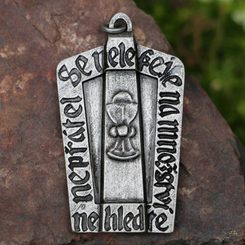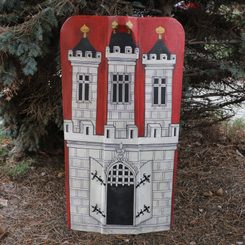Jan Hus
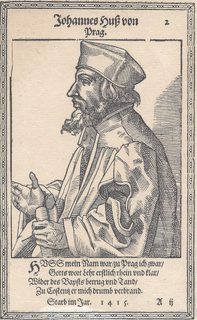
Jan Hus
Jan Hus (*c. 1370, +6. 7. 1415)
Few would have sought in the young Prague student, born in the South Bohemian village of Husinec near Prachatice, the future renowned religious reformer at the turn of the 14th and 15th centuries. Jan Hus, who likely received his foundational education at the parish school in Prachatice, gradually became a bachelor (1393) and master (1396) of the so-called liberal arts in Prague, then a priest in 1400, and eventually a preacher. His original motivation to become a priest for material security transformed during his studies into a strong conviction of the importance of the priesthood. Jan, who was influenced by the works of the English reformer John Wycliffe, was among those who called for church reform, the elimination of simony, and the moral decline of the clergy. However, he lost initial support from King Wenceslaus IV due to a dispute over indulgences, and after being accused of heresy in 1411-1413, he appeared at the summons to the Council of Constance in November 1414, where he was arrested. In the ensuing trial, where he refused to renounce his teachings, he was convicted and burned at the stake on July 6, 1415. This sparked resistance in Bohemia - 452 Czech and Moravian nobles sent complaints to the council bearing their seals, the university testified to Hus's innocence, and interest in his teachings grew. The tension that arose later led to the outbreak of the Hussite Revolution and the beginning of the Hussite Wars.
Related products
And what to read next?

The Tale of Sir Radzig’s Sword
In the heart of Bohemian workshops, a replica has been forged of the sword known to millions of players around the world. In Kingdom Come: Deliverance, Sir Radzig Kobyla’s sword carries the weight of destiny. It was meant to be a gift from a father, but fell into the hands of the enemy. In the end, however, it was reclaimed and returned to its rightful owner. It became a symbol of loyalty and of the strength to endure in the face of adversity.
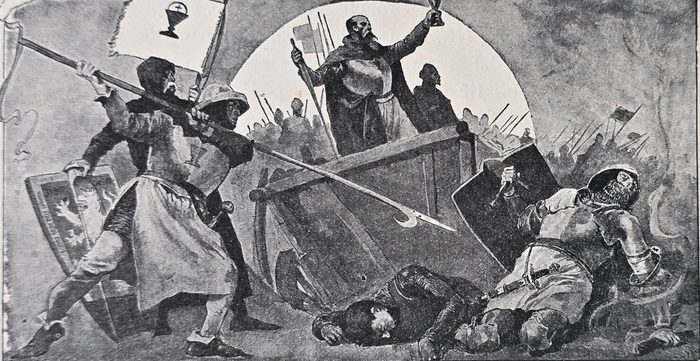
The Hussite Shock to Europe: How a Small Nation Changed the Continent
The Hussites were not merely heretics, as their enemies called them. They were the first to prove that it was possible to defend one's faith even against the whole of Christian Europe.

Trosky Castle
Trosky, the magical symbol of the Bohemian Paradise, hides a labyrinth of underground tunnels.
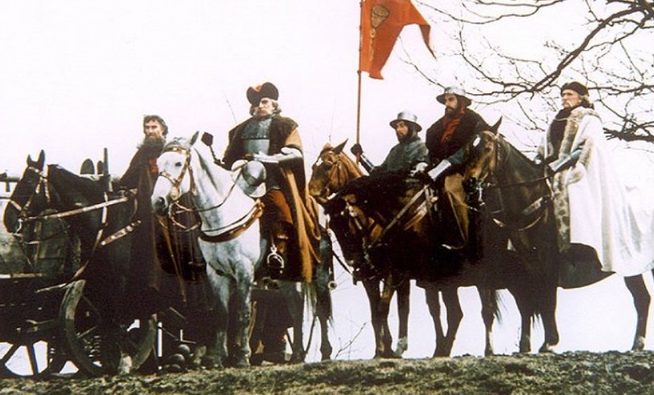
Jan Žižka of Trocnov, an ode to a brilliant military leader
He ranks among the most significant medieval commanders in European and Czech history—Jan Žižka of Trocnov (c. 1360 – October 11, 1424) is considered one of the undefeated giants of world battlefields. He gained fame for his use of the wagon fort, a highly effective defensive technique. His Hussite soldiers were pioneers in the use of firearms, particularly the "píšťala," a term from which the English word "pistol" is derived.







